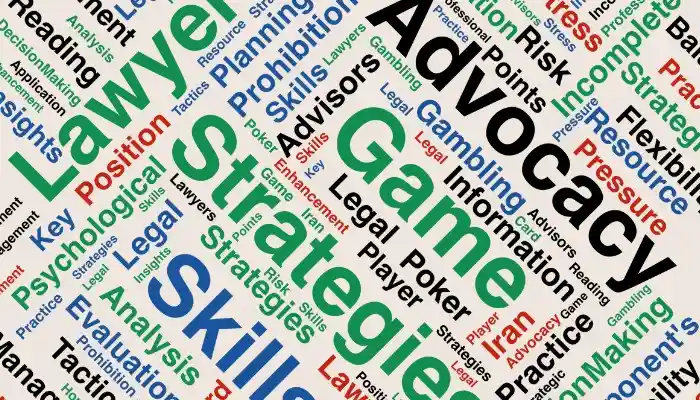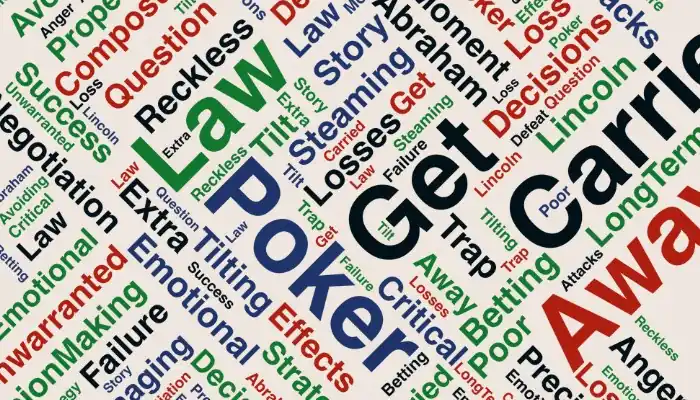Gambling is prohibited under Iranian law, and poker is considered a form of gambling. However, the strategies and lessons from this game can be applied in various fields, including legal practice. Lawyers and legal advisors can use poker’s techniques and thought processes in their professional decision-making. In upcoming notes that will be published in the following days, we will explore strategies drawn from the experiences of card players that can be applied in advocacy.
1. Decision-Making in the Face of Incomplete Information:
In legal practice, much like in poker, decisions often have to be made with incomplete information. Examining how to manage limited information and predict the behavior of the opposing party can help improve the strategies of lawyers and legal advisors.
2. Risk Analysis and Evaluation:
One of the most important skills of a successful lawyer is the ability to assess risks and make optimal decisions. These skills can be enhanced by studying poker strategies.
3. Psychological Tactics:
In advocacy, understanding the behaviors and motivations of the opposing party can have a significant impact on the success of a case. Just as poker players use psychology to read their opponents’ moves, lawyers and legal advisors can also benefit from these methods.
4. Resource Management:
Successful lawyers must effectively manage their resources. The lessons learned from poker about managing financial and time resources can assist lawyers in optimizing their resources.
5. Developing Long-Term Strategies:
Just as in poker, where long-term strategies are essential, lawyers must also have the ability to plan for the longer term.
6. Reading the Opponent’s Hand:
A key skill in poker is the ability to read the opponent’s hand. Similarly, lawyers and legal advisors can gain a better understanding of the positions and strategies of the opposing party by learning similar techniques.
7. Flexibility and Adaptability:
The ability to change strategies based on evolving circumstances is a critical skill. This skill can be well-learned from poker and applied in legal practice.
8. Managing Stress and Pressure:
Poker requires the ability to manage stress and pressure. Lawyers and legal advisors can also use similar techniques to maintain calm and focus in critical situations.
9. Developing Negotiation Skills:
Just as negotiation is essential in poker for raising or lowering bets, lawyers and legal advisors must also hone their negotiation skills to achieve the best outcomes for their clients.
10. Balancing Honesty and Strategy:
Honesty and strategy must be balanced in both fields to achieve the desired results. Lawyers can create an appropriate balance between the two by studying poker strategies.
In the upcoming notes that will be published in the following days, we will explore 52 key points, drawn from the experiences of card players, that can be applied in legal practice. Our goal is not to promote an illegal game, but to leverage its strategies and lessons to enhance the legitimate and professional work of lawyers and legal advisors. Each of these valuable tips will help you elevate your skills and strategies in the legal profession. Follow us so you don’t miss any of these insights.
Source: Lawyers’ Poker: 52 Lessons that Lawyers Can Learn from Card Players: Lubet, Steven: 9780195369014: Amazon.com: Books. (n.d.). Retrieved June 15, 2024, from.




